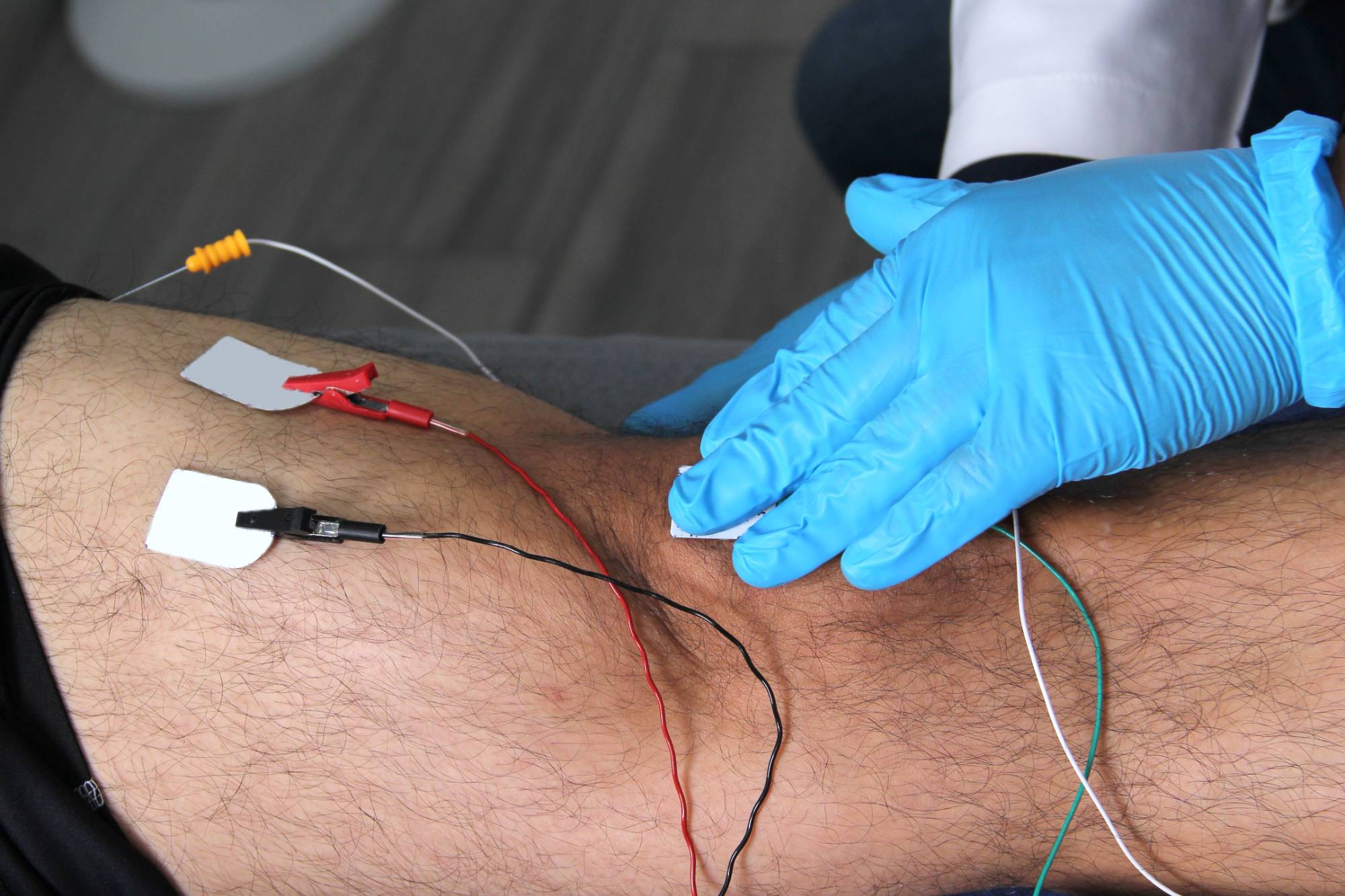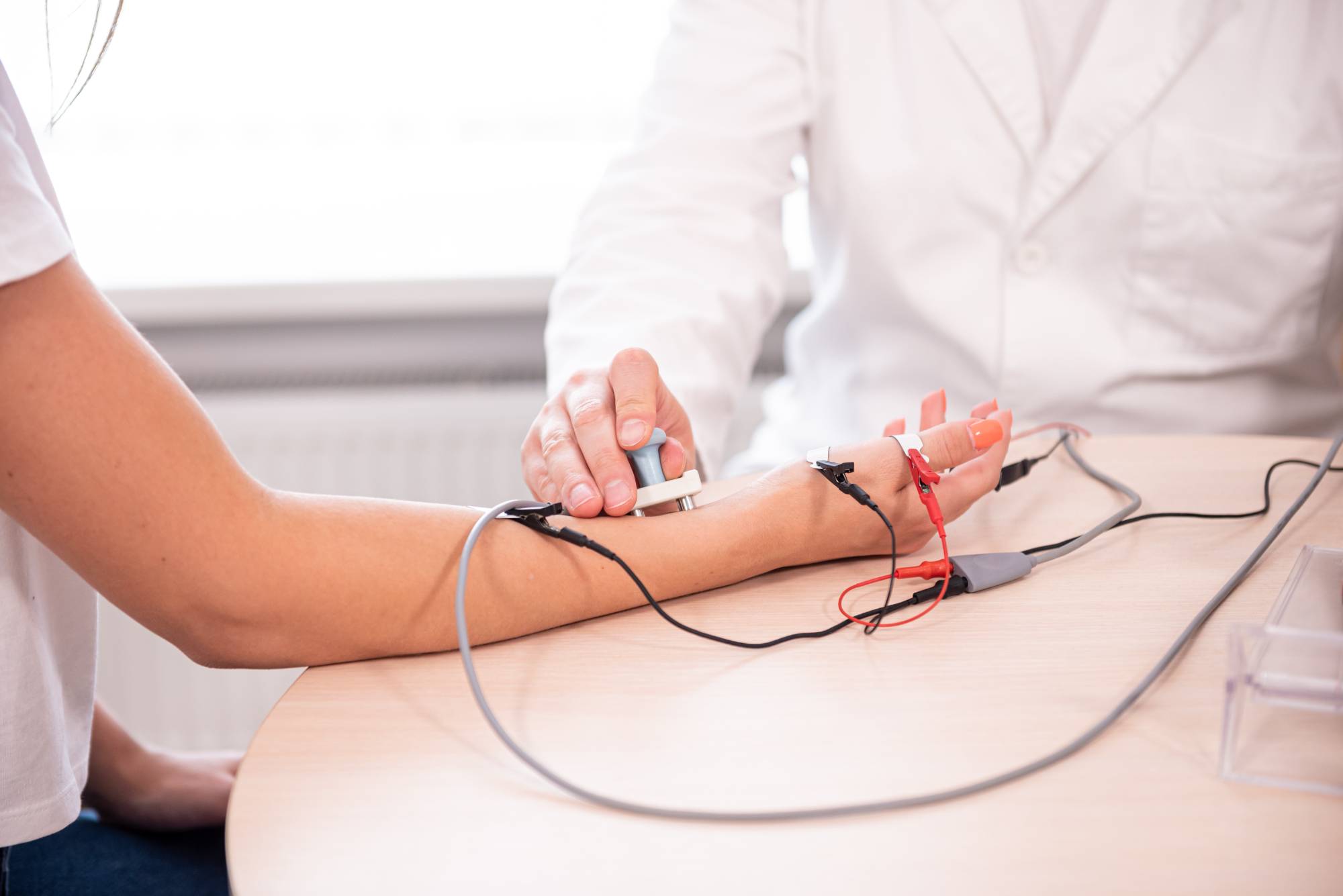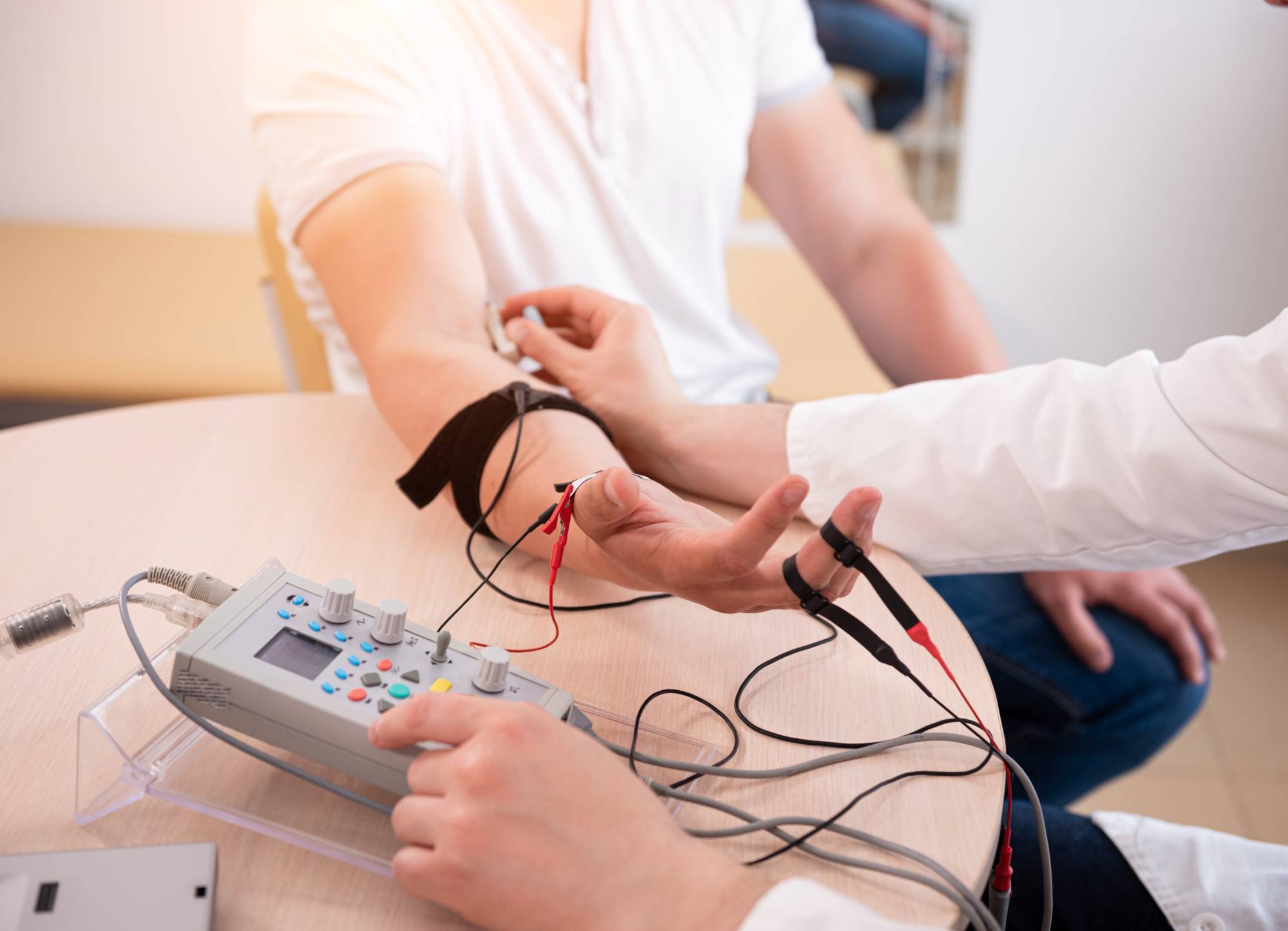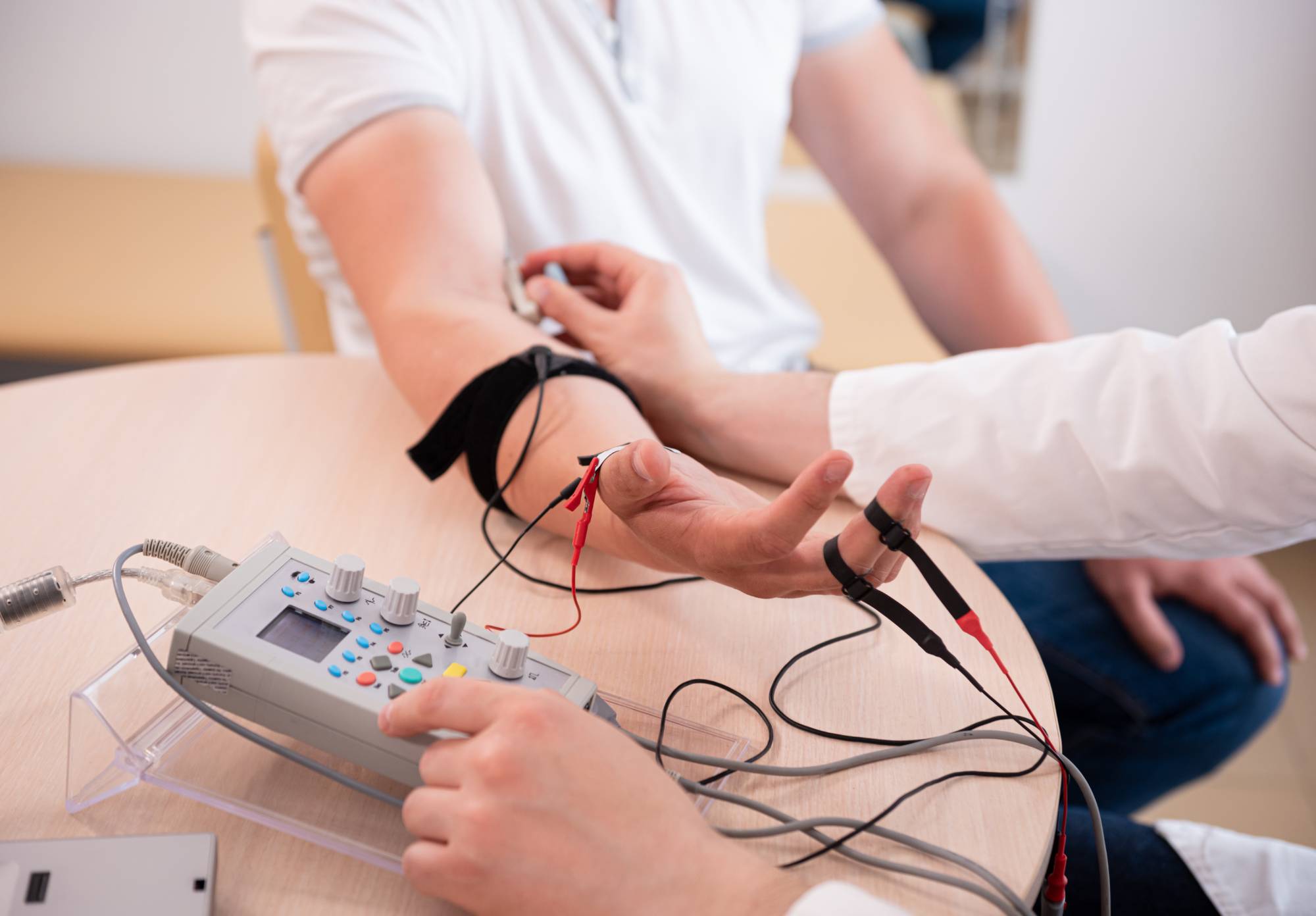Advanced electromyography testing that pinpoints nerve and muscle problems so you can start treatment faster.

Reviews

You’ve been dealing with numbness, tingling, or muscle weakness long enough. EMG testing gives you the precise diagnosis you need to move forward with confidence.
Our electromyography and nerve conduction studies identify exactly which nerves or muscles aren’t functioning properly. Whether it’s carpal tunnel syndrome, diabetic neuropathy, or a pinched nerve from a herniated disc, you’ll have clear answers within 45 minutes.
No more guessing. No more wondering if your symptoms will get worse. Just accurate results that lead to the right treatment plan for your specific condition.
We’ve been providing comprehensive neurological diagnostics to Douglaston and Queens residents for years. Our board-certified neurologists focus specifically on spine and nerve conditions.
We use the latest electromyography equipment because accuracy matters when you’re trying to understand what’s happening with your body. Our team performs hundreds of EMG tests annually, so you’re working with specialists who know exactly what they’re looking for.
You’ll get results you can trust and explanations that actually make sense.

Your EMG testing appointment starts with a brief discussion about your symptoms and medical history. We’ll explain exactly what we’re testing and why.
The nerve conduction study comes first. Small electrodes placed on your skin measure how well electrical signals travel through your nerves. Then we perform the electromyography portion, using a thin needle electrode to check muscle activity. Most patients describe it as similar to getting blood drawn.
The entire process takes 30-45 minutes. You’ll receive your results the same day, along with a clear explanation of what we found and recommended next steps for treatment.

Ready to get started?
Your EMG testing includes both electromyography and nerve conduction studies. We test the specific areas related to your symptoms, whether that’s your hands and arms for carpal tunnel evaluation or your legs for sciatica assessment.
Our Douglaston location serves patients throughout Queens who need answers about numbness, tingling, muscle weakness, or unexplained pain. We work with your referring physician to ensure the testing targets your specific concerns.
You’ll receive detailed results that clearly explain which nerves or muscles are affected and how severely. This precision helps your doctor create the most effective treatment plan for your situation.

New York:
Florida:
Support